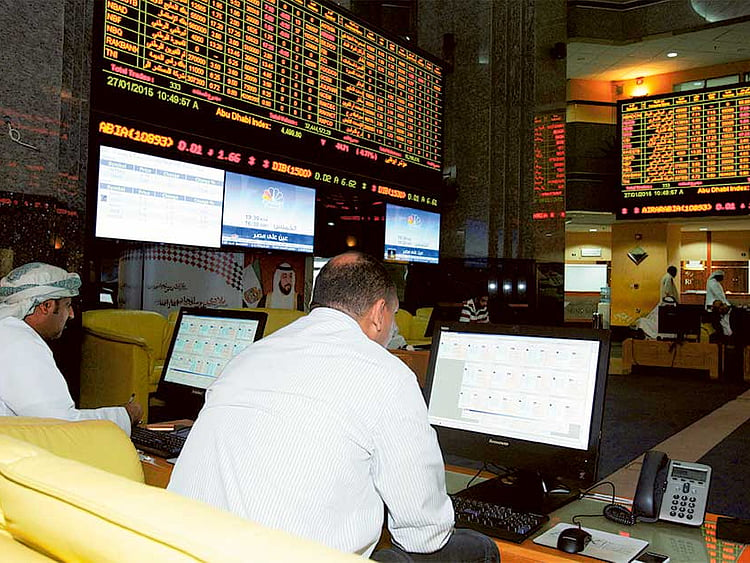UAE stock rally cut short by IMF reality check
Analysts cite declines to new economic indicators warning of a “severe” global recession

Dubai: UAE stocks’ recent nascent rally was dampened by dire economic forecasts and further realisation of how economically damaging the coronavirus crisis can get.
Dubai Financial Market (DFM) dropped 2.2 per cent at 1,896 points, while Abu Dhabi Securities Exchange (ADX) fell 1.2 per cent to 4,127 points. In the last seven sessions, the indices had gained for five of them - in tandem.
Investors got a dose of reality after making good progress over the last few trading sessions – which analysts cited to the International Monetary Fund (IMF) flagging escalating risk of severe global recession in its latest economic growth projections.
Reality check
“The IMF does anticipate an improvement in 2021—global growth of almost 6 per cent —but that the pre-coronavirus growth trajectories of major economies will have been derailed lower,” cautioned Edward Bell, commodity analyst at Emirates NBD.
The IMF now expects global GDP to contract by 3 per cent this year, the worst annual performance since the Great Depression of the 1930s. And as for the GCC, the IMF downgraded growth forecasts for 2020 across the region.
The number of coronavirus cases in the six Gulf Arab states continued to tick higher, surpassing 16,500 with 111 deaths – albeit the rate of growth was at a slower pace than certain global hotspots. The fact that recoveries too were rising was also a good sign.
The UAE has the second largest number of coronavirus cases after much larger neighbour Saudi Arabia. Most of the GCC have taken measures to curb the spread of infection, initially linked to travel, by suspending passenger flights, closing most public venues and imposing curfews.
GCC peer markets slip
The largest bourse in the GCC region – Saudi Arabia’s Tadawul – fell as well, declining about a per cent, hurt by a 1.6 per cent drop in oil giant Saudi Aramco.
Kuwait’s main benchmark was down 1.7 per cent, while indices in Oman, Bahrain and Qatar just slipped marginally lower. Worsening investor sentiment in the region was the plunge in oil prices.
Brent crude shed 4 per cent to $28.42 per barrel, while Benchmark US crude (WTI) dropped 2.1 per cent to $19.69 per barrel. The comes just days after an OPEC deal to slash production by record levels to help stabilize the fall in oil prices – which fell 50 per cent in the month of March alone.
“Markets believe the (OPEC) deal won’t come close to offsetting demand devastation and isn’t even large enough to eat into what’s in storage,” said Stephen Innes, chief global market strategist at AxiCorp.
Strain in global markets too
Asian markets traded modestly lower after China cut an important interest rate to a record low — an expected measure that indicates how the country is trying to help banks and borrowers weather the ongoing economic turmoil wrought by the coronavirus pandemic.
European markets too traded lower, despite the region starting to lift restrictive measures in various countries to allow the economies to gradually restart.
“With the market outlook still mired in tremendous uncertainty, gains in equities remain far from a one-way bet,” wrote Han Tan, market analyst at FXTM.
The Dow, S&P and Nasdaq on Wall Street was also indicating a lower open, but this is mostly due to top lenders reporting first-quarter results after taking into account writedowns stemming from pandemic-related shutdowns.
Sign up for the Daily Briefing
Get the latest news and updates straight to your inbox
Network Links
GN StoreDownload our app
© Al Nisr Publishing LLC 2026. All rights reserved.